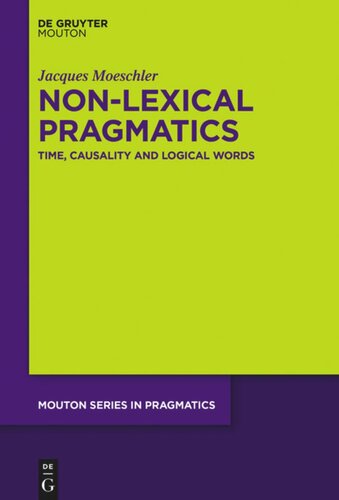

Most ebook files are in PDF format, so you can easily read them using various software such as Foxit Reader or directly on the Google Chrome browser.
Some ebook files are released by publishers in other formats such as .awz, .mobi, .epub, .fb2, etc. You may need to install specific software to read these formats on mobile/PC, such as Calibre.
Please read the tutorial at this link: https://ebookbell.com/faq
We offer FREE conversion to the popular formats you request; however, this may take some time. Therefore, right after payment, please email us, and we will try to provide the service as quickly as possible.
For some exceptional file formats or broken links (if any), please refrain from opening any disputes. Instead, email us first, and we will try to assist within a maximum of 6 hours.
EbookBell Team

5.0
20 reviewsThis book presents both general issues in pragmatic theories and specific arguments for an inferential approach to pragmatics. At the present time, pragmatics is generally approached from the neo- and post-Gricean perspectives. These perspectives, which stem from philosophical theories of meaning, can be viewed as paradigms, that is, sets of concepts, procedures and results which structure scientific investigations.
The main purpose of the book is to defend a new post-Gricean approach to the substantial lexicon and to the functional lexicon (tenses, connectives), and more specifically to explore lexical and non-lexical pragmatics. A precise approach to lexical and non-lexical pragmatic contents will be developed, with special emphasis on non-lexical temporal and causal information. A model for inferring temporal relations in discourse (the directional inferences model based on French data) is developed. This approach to temporal representations and inferences will be completed by a discussion on how causal inferences are triggered in discourse interpretation. The role of conceptual causal relations, as well as causal procedural information encoded in discourse connectives (mainly parce que ‘because’, donc ‘therefore’, et ‘and’), is empirically and theoretically supported. Pragmatic theory can be described as a very powerful interface system which gives access to lexical and functional information, and which contains rich pragmatic enrichment processes, for non-lexical information (quantifier, tenses, connectives) as well as for lexical information (event predicates).
The book’s originality stems from its demonstration that pragmatic enrichment is structurally constrained, and occurs at the level of explicature.